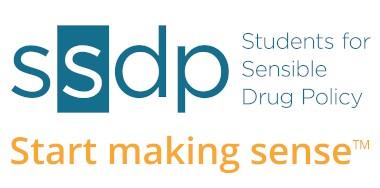SSDP Science Policy Committee successfully pushes back on DEA effort to criminalize psychedelic research

This entry has been published on October 28, 2024 and may be out of date.
FOR IMMEDIATE RELEASE: SSDP Science Policy Committee successfully pushes back on DEA effort to criminalize psychedelic research On Friday August 26, 2022, the Drug Enforcement Administration (DEA) withdrew proposed Schedule I status for 2,5-dimethoxy-4-iodoamphetamine (DOI) and 2,5-dimethoxy-4-chloroamphetamine (DOC). The notice states that “The Drug Enforcement Administration (DEA) is withdrawing a proposed rule that was published in the Federal Register on April 11, 2022, which proposed to place two phenethylamine hallucinogens in Schedule I of the Controlled Substances Act.” DOI is a high affinity, potency partial agonist for the serotonin (5-HT) subtype 2A (5-HT2A) receptor. Because it is unscheduled and targets the same receptor subtype as classical psychedelics (e.g., psilocybin and LSD), DOI is widely used for psychedelic research. Between 2012 and 2022, DOI was reportedly used in approximately 1,300 research articles, including in many high-impact journals such as Nature, Cell, and Journal of Neuroscience. DOC is a related chlorinated analog of DOI, but DOI is much more widely used in preclinical psychedelic research. Co-chairs of the Students for Sensible Drug Policy Science Policy Committee, Lindsey Galbo (PhD candidate, Wake Forest University Graduate School of Arts and Sciences) and Elijah Ullman (Emory University), Danny Lustberg, PhD, and PhD candidates, Anousheh Bakhti-Suroosh (Salk Institute, University of California San Diego) and Alaina Jaster (Virginia Commonwealth University), filed a motion with the DEA requesting a hearing to provide expert testimony and prevent the proposed Schedule I status from moving forward. The company Panacea Plant Sciences also filed a request for a hearing separately contributing to opposition of the motion. Although they lacked substantial scientific evidence to justify Schedule I status, the DEA stated that there is “high abuse potential” for DOI and DOC on the basis that these compounds can substitute for LSD or psilocybin in drug discrimination tasks in rodents. The DEA has historically used evidence from laboratory animal models of drug self-administration to identify abuse potential, but there is insufficient evidence to support this claim in the case of DOI. Rather, some studies have utilized the drug discrimination paradigm which establishes the ability of an animal to discriminate the interoceptive (subjective) effects of a known drug (i.e., DOI) from a vehicle control (saline) or a battery of comparator drugs (i.e., other psychedelics).. This test enables animals to express an operant behavior if the comparison drug is “subjectively” similar to the known drug. However, the drug discrimination task does not directly assess abuse liability; the logic that DOI is subjectively similar in rodents to classical hallucinogens is not evidence of their abuse liability; it simply indicates similar receptor pharmacology (action at the serotonin receptor). Therefore, the DEA’s interpretation of these experimental findings is flawed because there is no direct measurement of abuse liability.; ( these results simply demonstrates the subjective and pharmacological similarities of DOI to classical psychedelics. Moreover, it is also known that classical psychedelics and DOI do not produce evidence of “drug-seeking” or “drug-liking” behavior in laboratory animal models in other behavioral paradigms like self-administration. . Therefore, the DEA has no substantial evidence from laboratory animal models to support their claim that DOI or DOC have abuse potential. Both Alaina Jaster and Anousheh Bakhti-Suroosh utilize DOI in their PhD dissertation research and emphasize the importance of DOI in understanding human disease states and their treatments: “I came into my PhD program three years ago. DOI has been a huge part of my understanding of psychedelics and how they are structurally different, as well as how the serotonergic system is regulating mood, cognition and even aspects of drug addiction. Using DOI, I was able to publish one of the first papers focused solely on understanding potential differences across sexes following psychedelic administration. Without the use of this important research tool, none of my work would be possible,” said Alaina Jaster, PhD candidate at VCU. “We are living through an unprecedented explosion of clinical and basic research into psychedelics – an understandable result of the growing evidence demonstrating their transdiagnostic therapeutic applications. This is not the time to reinforce the unscientific and irrational scheduling system for psychedelics, or any drugs for that matter. Antiquated drug policies grounded in unjustified fear and panic disproportionately burden the most vulnerable among us and impede scientific discovery,” said Anousheh Bakhti-Suroosh, a Neurosciences PhD student at the University of California San Diego. “As a researcher in a systems neuroscience lab at the Salk Institute, unencumbered access to well-validated and inexpensive compounds targeting the 5HT2A receptor is critical for my research investigating the impact of psychedelics on emotion, cognition, and social behavior. The DEA’s decision to withdraw the scheduling of DOI and DOC is an important victory for scientists, drug policy reform advocates, and the millions of individuals living with mental health issues who may benefit from our research.” Other scientists on the team don’t use DOI in their research but are strong advocates for access to scientific tools. “I’m an NMDA receptor pharmacologist, I don’t use these compounds. However, restricting scientists’ access to compounds is absolutely the wrong way to go. Science is exploratory. Schedule 1 status is incredibly prohibitive for most researchers. If DOI and DOC went to Schedule 1, then the whole field of depression and serotonin receptor pharmacology and physiology could be set back at a time with a ballooning mental health crisis. The withdrawal of the motion to place DOI and DOC on the Controlled Substances Act is a win for all of science and mental health,” said Elijah Ullman regarding the teams’ win. Lindsey Galbo, MS: My training as a doctoral candidate is heavily focused on the behavioral pharmacology of commonly consumed drugs. Across the number of papers I’ve read and meetings I’ve been to, I have yet to see any meaningful reports or studies regarding the recreational use or abuse of DOI or DOC. To see the DEA attempt to conflate findings from a preclinical behavioral pharmacology assay that should not be considered an assay that determines abuse liability to justify their prerogative to schedule an essential research chemical, such as DOI, sincerely frustrated me. As others have advocated, the implications of a decision to schedule DOI would severely hinder imperative pharmacology research in an array of research areas and, as many SSDP’ers advocate, we know well that criminalization of drugs is not an effective means to reduce use, even if there was actual cause for concern regarding DOI. DannyLustberg, PhD: “I am a behavioral pharmacologist interested in the role of monoamine neurotransmitters in stress-related mental illnesses, including depression, anxiety disorders, and obsessive-compulsive disorder (OCD). Psychedelic drugs (such as psilocybin) and research chemical analogs like DOI have demonstrated rapid efficacy in alleviating depressive and compulsive symptoms in clinical populations as well as in rodent models of these disorders. The rescheduling of DOI would represent a deleterious, backwards step in the development of better drug treatments for people with stress-induced mood disorders and OCD.” To further demonstrate the importance of DOI as a research tool, unpublished data from researchers at Virginia Commonwealth University suggest that DOI can reduce place preference associated with oxycodone in mice 24 hours following a single administration. This conditioned place preference model is used to understand drug liking and context specific associations of drug use. Due to the highly specific nature of DOI’s effects on the 5HT2A receptor, these effects can be translated generally to modulatory roles of these receptors in specific brain regions. Withdrawal of proposed Schedule I status for these drugs is a fantastic win for research investigating the role of the serotonergic system in mood, cognition, substance use disorder, and social behavior. Further, neuropharmacologists, neuroanatomists, and physiologists are able to continue their work without having to worry about the burden and cost of filing for Schedule I licensure. However we must not rest on our laurels; the DEA will “ be publishing a new proposed rule using an amended procedure.” It is unclear what this new amended procedure will be, and could range from rewording of the language initially used to propose Schedule 1 status for these compounds, or placing them in Schedule IV for example. The fight for Sensible Drug Policy continues. The War on The War on Drugs is not over, but we have won this latest battle. Signed, Alaina Jaster (VCU) Anousheh Bakhti-Suroosh (UCSD and Salk Institute) Daniel J. Lustberg, PhD Elijah Z. Ullman (Emory University) Lindsey Galbo (Wake Forest University)

